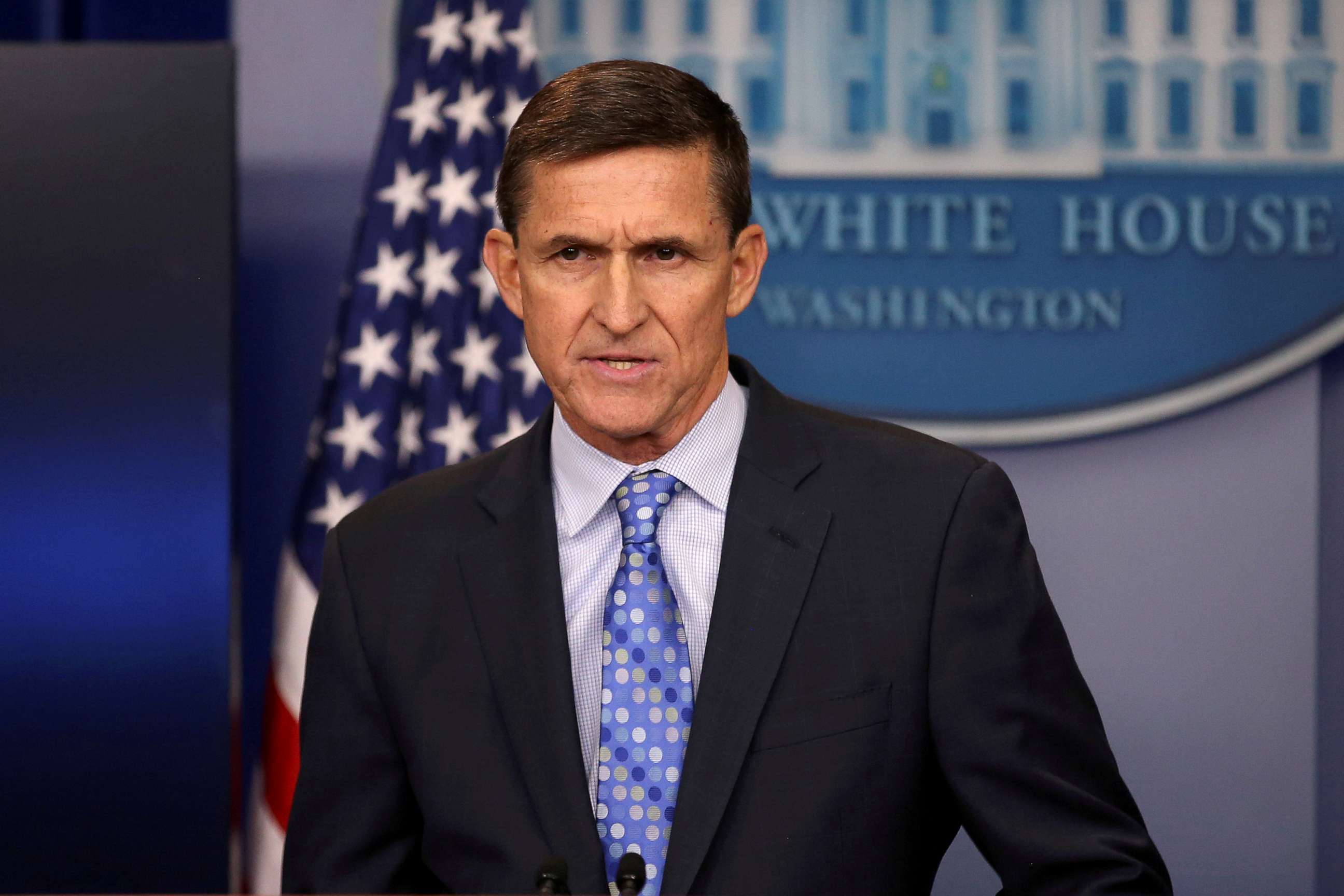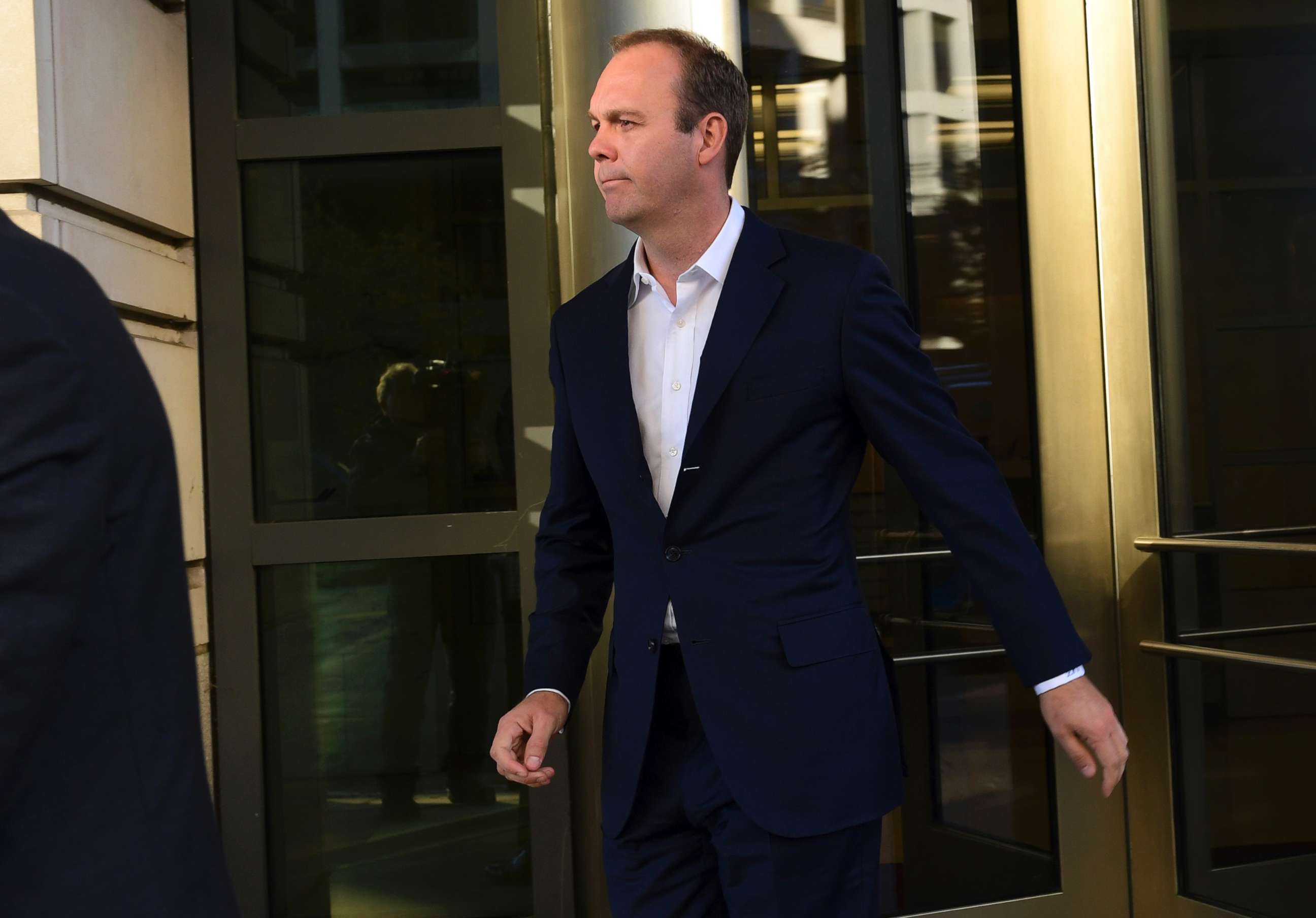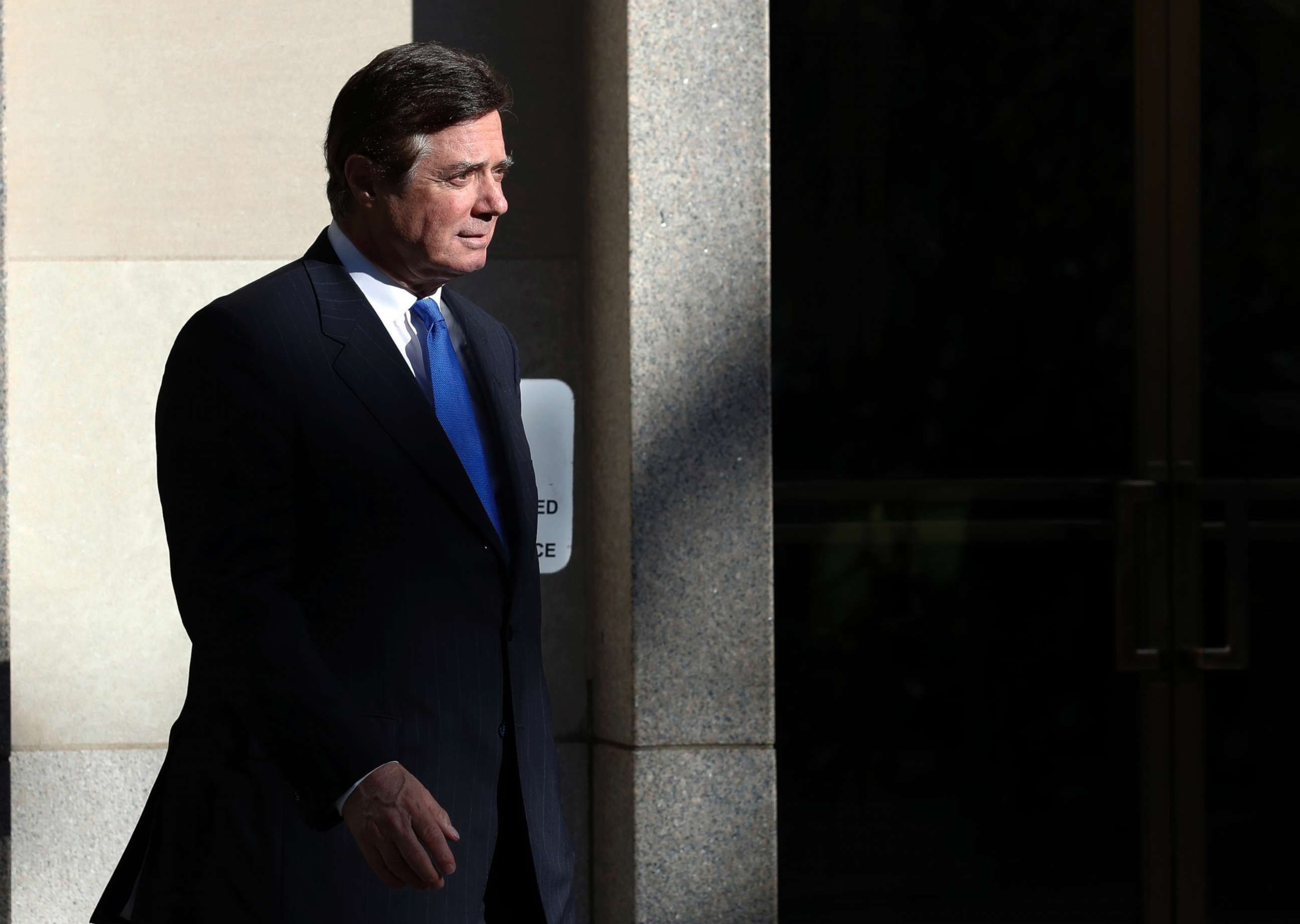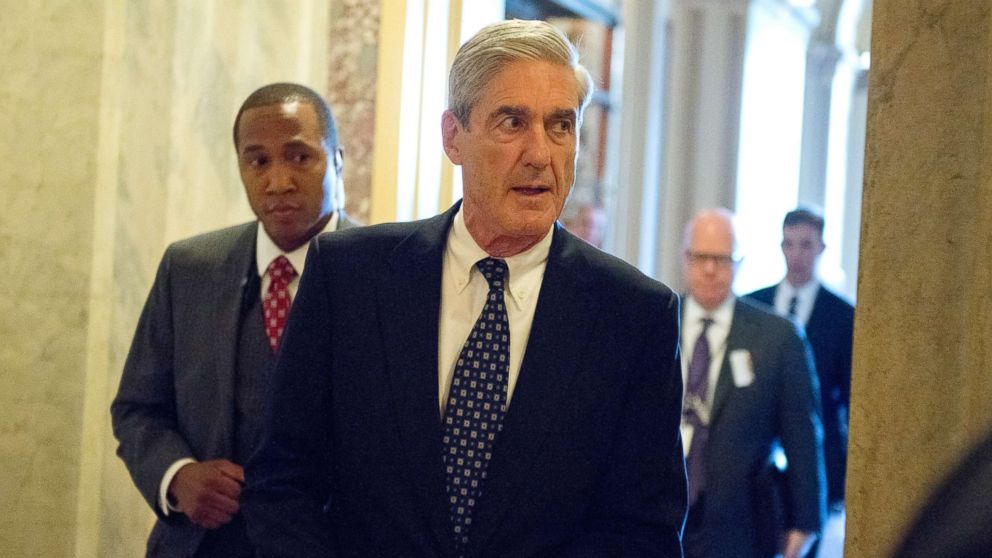Unanswered questions in Robert Mueller's Russia investigation
— -- On Monday, the first charges and first plea in special prosecutor Robert Mueller's Russia investigation were revealed, unearthing accusations of lying to the FBI, conspiracy and money laundering.
President Donald Trump's former campaign manager, Paul Manafort, and Manafort's longtime business associate Rick Gates were indicted in federal court on Friday on charges including conspiracy against the United States, money laundering and working as unregistered foreign agents. Their charges were unsealed Monday morning.
Shortly afterwards, the special counsel's office announced that George Papadopoulos, a foreign policy adviser to Trump's presidential campaign, pleaded guilty this month to making false statements to FBI agents about his correspondence with Russian nationals and attempts to arrange a meeting between the campaign and Russian officials.
The revelations, which continued to embroil the White House in questions over Russian involvement in the 2016 election, gave great insight into the investigation, but also created a lot of new, unanswered questions.
Here are some of the lingering questions that have arisen out of the charged leveled against former Trump associates:
Who might be next?
Any member of the campaign with connections to the Russians has to potential to be a target of the investigation being led by Mueller.
Michael Flynn, for example, remains under intense investigation. This spring, the former national security adviser, invoked theFifth Amendment and rejected the Senate Intelligence Committee's subpoena for documents relating to Russian interference in the 2016 presidential election.

The committee subpoenaed Flynn's personal documents on May 10, after he declined to cooperate with an April 28 request from the panel in relation to its investigation of Russian interference in the election and possible ties to Trump associates.
Flynn, one of Trump's earliest campaign supporters, resigned in February amid controversy about a call to the Russian ambassador to the U.S. before the inauguration.
It's unclear who else, if anyone, might face charges in the wide-ranging case.
One thing the unsealed guilty plea showed, it that false statements -- anyone who was interviewed who wasn’t completely truthful with the investigators -- could face charges.
What’s next for Manafort and Gates?
Manafort and Gates are currently on house arrest and they face up to 20 years in prison.
Manafort was released on a $10 million "unsecured appearance bond" and Gates on a $5 million bond.
Under the terms of their release, they will be restricted to their homes and can only leave for meetings with their attorneys, court dates, medical appointments, or religious observance. They can't have passports, and must call the U.S. Marshals to check in every day.
They are scheduled to appear in court next on Thursday for a status hearing before federal judge Amy Berman Jackson.

Legal observers believe prosecutors presented strong case and will likely result in guilty plea.
However, Manafort’s lawyer on Monday called some of the charges "ridiculous" and said there was "no evidence" of the Trump campaign and Manafort colluding with the Russian government.
His statements could be pre-trial posturing or a sign that he's fixing for a fight.
Gates was represented by a public defender due to the short notice, but is "not eligible for appointed counsel" due to his wealth for the continuation of the case.
Glenn Selig, a spokesman for Gates, said that he "welcomes the opportunity to confront these charges in court."
"This fight is just beginning," said Selig in a statement after the court appearance.
Who are the unnamed people in Papadopoulos' guiltily plea?
This case opens a window into how Mueller still has so much more to do, and so many more people he’s looking at. Although the court documents don't disclose additional names, many associations are revealed.
In terms of how many people knew what Papadopoulos was up to with Russia, the statement of facts says he emailed "several members" of Trump’s foreign policy staff about it; Papadopoulos told all those at the Trump meeting on March 31 about it; Papadopoulos emailed two "high-ranking campaign officials" about his efforts; he emailed a “campaign supervisor" about it; and he emailed a senior policy adviser about an “open invitation" from Russia to meet with Trump.
ABC News identified Manafort, Corey Lewandowski and Sam Clovis Tuesday as three of the campaign officials who were contacted by Papadopoulos.
And as Mueller’s team told the judge during Papadopoulos’ plea hearing: "There’s a large-scale ongoing investigation of which this case is a small part."
In other words, by Mueller team’s own admission, there is still a lot more to come.
How did Manafort spend his money?
The indictment against Manafort and Gates offers insight into their alleged financial dealings and expenditures. Prosecutors allege that Manafort used hidden overseas wealth to enjoy a "lavish lifestyle" without paying taxes on that income.
Manafort and Gates generated tens of millions of dollars in income as a result of their Ukraine work - hiding Ukraine payments and laundering the money, according to the indictment.
He "spent millions of dollars on luxury goods and services for himself and his extended family through payments wired from offshore nominee accounts," reads the indictment.

Those millions include, approximately $2,850,000 on a condo in New York City that he rented out on Airbnb, and approximately $3,000,000 in cash for a brownstone building in Brooklyn, NY.
Manafort used offshore accounts to purchase real estate in the U.S. in order to have the benefits of liquid income without paying taxes on it, allege prosecutors.
He is also accused of spending $849,215 at a men's clothing store, $655,500 on a landscaper, and $934,350 at an Antique Rug dealer in Virginia, among other expenditures.
The Weekly Standard called around the the Alexandria rug dealers, near Manafort's home, and talked to a rug expert that said in order to by a million dollars of rugs in Alexandria, "you'd have to buy an entire shop."
ABC News' Pierre Thomas and Mike Levine contributed to this report.




